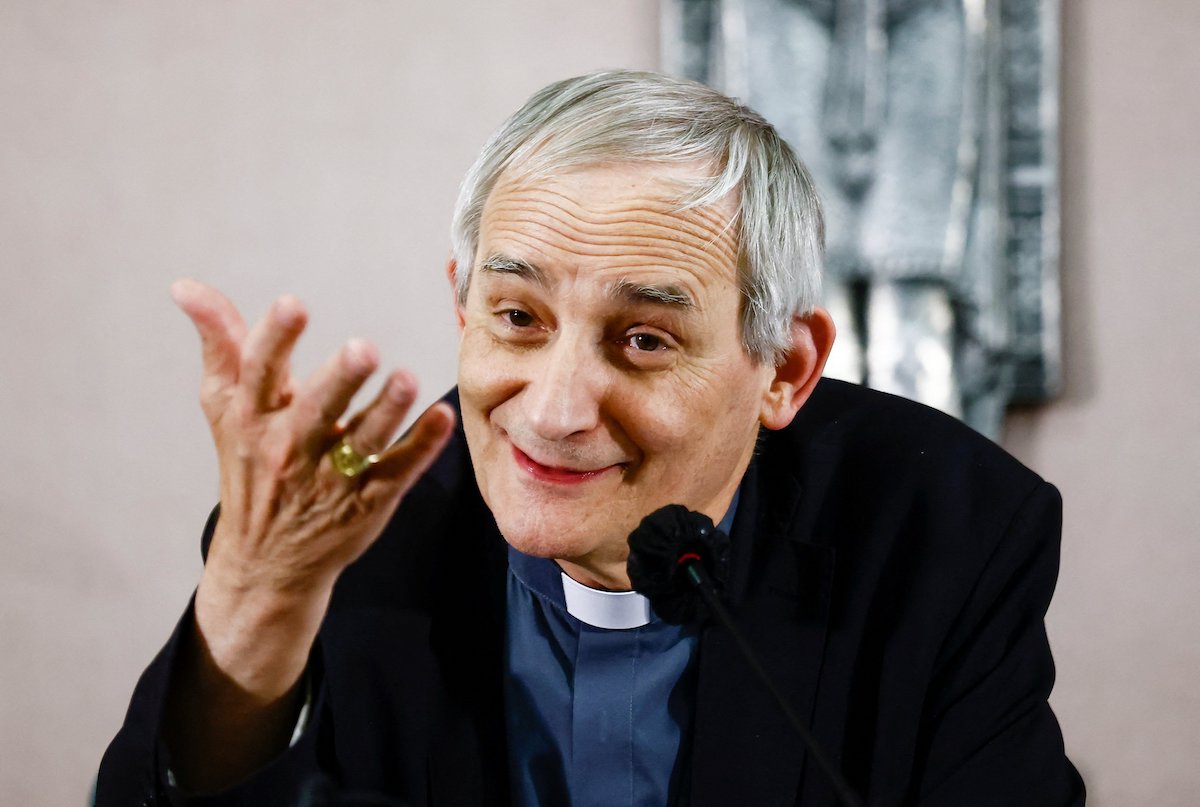By Carol Glatz, Catholic News Service
VATICAN CITY (CNS) — Everybody loses when politics tries to poison church life and when church members use the logic of politics, said an Italian cardinal.
“To poison ecclesial relations with the logic of politics is making trouble” and this is not just a problem in Italy, it is also evident in “the marked political polarization seen in the American church,” Cardinal Matteo Zuppi of Bologna, president of the Italian bishops’ conference, told the Vatican newspaper, L’Osservatore Romano.
“But wherever politics has used pseudo-theological or spiritual categories to contaminate ecclesial life, everyone has lost in the end,” he said in an interview published Sept. 3.
“We have to pay close attention to this issue and not just because of manipulation from the outside, but also because of the divisions within,” the cardinal said.
“Trouble results from falling into these traps, for example, of false conflicts between the social and spiritual (dimensions) or the often-contrived divisions on ethical issues,” he added.
The problem of polarization, Cardinal Zuppi said, is everywhere, “ruling supreme on every issue, big and small.”
It seems like a quick and easy way to respond to the many complexities in the world by just “taking a side” without needing to think or tackle too many questions, he said.
“Instead we have to face complexity without fear, to ask ourselves questions, especially questions concerning ‘who,’ that is, putting the human person at the center” of the discussion, he said.
When it comes to ethical issues, he said, “we cannot simply repeat little lectures from the past, instead, we must find new words for new questions.”
“To be very frank, if the world is heading (in) the other direction on ethical issues, it certainly means that we must not conform to or say what the world wants to hear, but that we must know how to tell the eternal truths in today’s culture” or terminology. “Otherwise, we repeat a truth that has become hard to accept.”
St. Paul VI and Italian Father Primo Mazzolari, who called for increased participation of the laity, church reform and outreach to the marginalized in the years ahead of the Second Vatican Council, had already been warning that if there are so many people who are distanced from the church, “the problem is not them, it is us,” the cardinal said.
People are implicitly calling for “a church that is more evangelical, more motherly and, for this reason, demanding and engaging, that does not play the (wicked) stepmother and says, ‘I told you so,'” he said.







